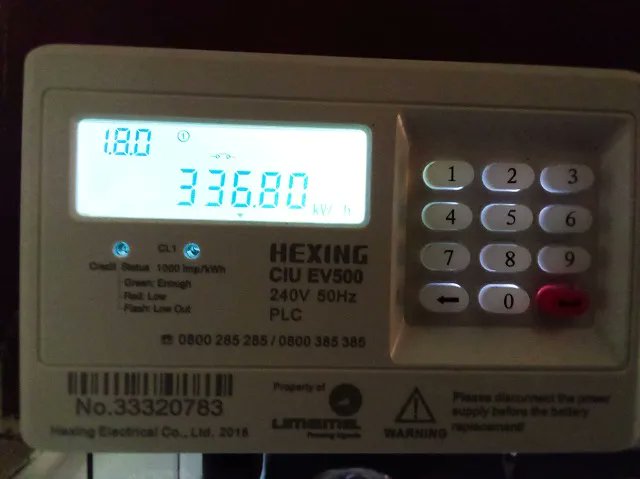Uganda’s Electricity Regulatory Authority (ERA) has announced a 5.2% reduction in electricity end-user tariffs for the first quarter of 2025, in a move aimed at making power more affordable for consumers and boosting economic growth.
The reduced tariffs, which take effect from January to March, will benefit domestic, commercial, and industrial users, with qualifying domestic consumers paying 250 Ugandan shillings (Ush) per unit for the first 15 units consumed each month.
This subsidized rate, known as the Lifeline Tariff, is designed to support low-income earners by ensuring access to essential electricity for basic domestic needs. Consumers who use less than 100 units per month qualify for this tariff.
Other domestic consumers will see a decrease in the cost per unit from Ush 796.4 to Ush 775.7, while commercial consumers, such as small enterprises, will now pay Ush 575.2 per unit, down from Ush 599.9 in the previous quarter.
Medium industrial consumers will benefit from a rate reduction to Ush 417.8 per unit, while large industrial consumers will pay Ush 351.5 per unit for manufacturing and Ush 367.1 for services.
The ERA’s decision is expected to provide relief to consumers and support economic growth in the country, which has been struggling with high electricity costs.
“The reduction in electricity tariffs is a welcome move, as it will help to reduce the cost of doing business in Uganda,” said Dr. Sarah Wasagali Kanaabi, ERA Chairperson.
“The ERA is committed to ensuring that electricity is affordable and accessible to all Ugandans, and this tariff reduction is a step in the right direction.”
The tariff reduction is also expected to boost Uganda’s competitiveness in the region, as high electricity costs have been a major constraint to businesses operating in the country.
However, some analysts have expressed concerns that the tariff reduction may not be sustainable in the long term, given the high cost of generating electricity in Uganda.
“The ERA’s decision to reduce electricity tariffs is a positive move, but it is essential to ensure that the tariff reduction is sustainable and does not compromise the financial viability of the electricity sector,” said one analyst.
The ERA has assured that the tariff reduction will not compromise the financial viability of the electricity sector, as it has taken into account the costs of generating electricity and the need to ensure that the sector is financially sustainable.
Tariff Reduction Breakdown
- Domestic consumers: 5.2% reduction
- Qualifying domestic consumers: Ush 250 per unit for the first 15 units consumed per month
- Other domestic consumers: Ush 775.7 per unit, down from Ush 796.4
- Commercial consumers: 4.1% reduction
- Ush 575.2 per unit, down from Ush 599.9
- Medium industrial consumers: 6.3% reduction
- Ush 417.8 per unit
- Large industrial consumers: 6.9% reduction
- Ush 351.5 per unit for manufacturing
- Ush 367.1 per unit for services
- Public facilities: 2.7% reduction
- Ush 360.0 per unit, down from Ush 370.0






